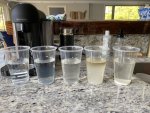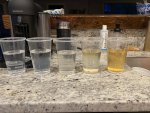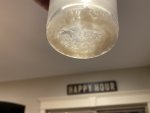I have a well that collects ground water near my pool (I think the ground water might come from a natural spring). I would like to use this water to refill any evaporated water instead of from the hose (which has municipal water). Although the water coming from the well appears clear (and is being run through its own cartridge filter before hitting the pool), my pool starts to turn green the more water that dumps in from the well. My initial reaction was that it was algae, SLAMing didn't seem to do the trick, so I looked at this forum and I started thinking it was copper. However, I read this: Copper in Pool Water - Further Reading, which suggested that copper rarely comes from ground water. I tried one of those water test kits from Lowes on the water coming out of the well and it showed nothing for iron or copper (ran the test twice and same results for both).
I talked to a water tech at a water filtration company, he thought it might be tannins and suggested I run a little test, which I ran as shown in the picture below:

From the left:
I talked to a water tech at a water filtration company, he thought it might be tannins and suggested I run a little test, which I ran as shown in the picture below:

From the left:
- Tap water
- Tap water with a capful of 7.5% bleach
- Well water
- Well water with a capful of 7.5% bleach
- Well water with .3oz of dichlor



